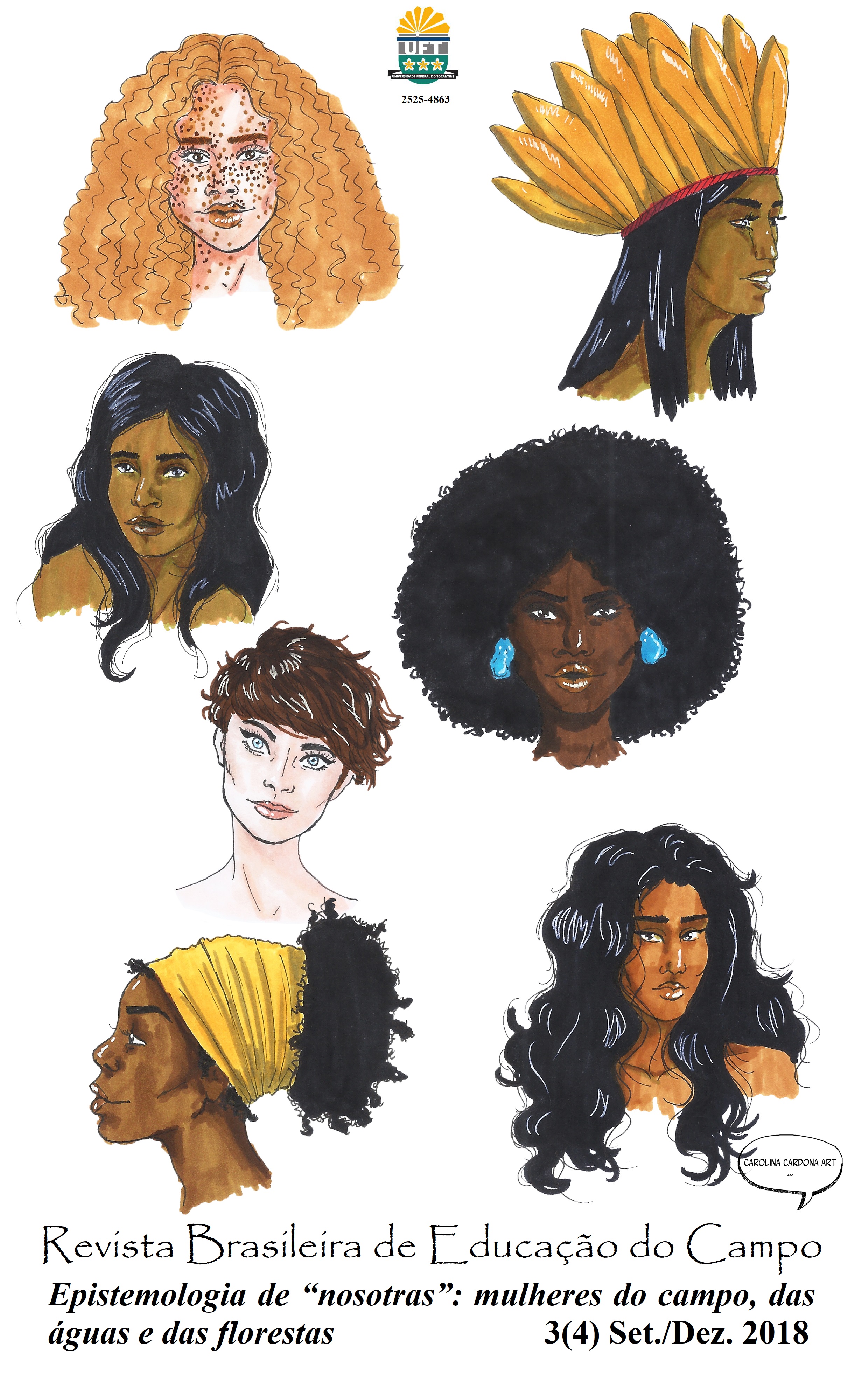Prospects and analysis of the educational training process in the project with citizenship in the countryside
DOI :
https://doi.org/10.20873/uft.2525-4863.2018v3n4p1372Résumé
Este artigo possui como problema de pesquisa a Educação do Campo e a formação dos professores que nela atuam ‒ por meio da análise e discussão do trabalho pedagógico de educadoras participantes do Programa Nacional de Educação na Reforma Agrária (PRONERA), desenvolvido no âmbito da Educação do Campo e no chão da Educação de Jovens e Adultos ‒, tendo como objetivo de pesquisa reconhecer o envolvimento das educadoras do Projeto Tecendo a Cidadania no Campo, do polo de Flores/Formosa. Empreendemos uma metodologia de abordagem qualitativa com a realização de entrevistas semiestruturadas. A partir dos limites e desafios apontados pelas educadoras, foi possível identificar: a dificuldade em atualizar sua prática docente ao público da EJA; a falta de aproximação com uma abordagem de educação libertadora; a escassez de material didático e uma certa dificuldade com a escrita e leitura por parte das educadoras. Quanto às motivações e expectativas em relação ao projeto, foram apontadas pelas educadoras os seguintes pontos: o prazer de ensinar e poder participar de momentos de troca de experiências; a vontade de uma formação; a consciência e o dever de ajudar o próximo; a necessidade de alfabetização dentro do assentamento; a busca por melhorias na realidade; a formação de cidadãos mais conscientes; a contribuição na transformação da sociedade; e a realização pessoal com a certificação dos alunos ao final do processo.
Palavras-chave: Educação do Campo, Educação de Jovens e Adultos, Emancipação.
Prospects and analysis of the educational training process in the project with citizenship in the countryside
ABSTRACT. This article has as a research problem the Rural Education and the training of the teachers who work in it ‒ through the analysis and discussion of the pedagogical work of educators participating in the National Program for Education in Agrarian Reform (PRONERA), developed in the scope of the Education of the Field and in the floor of the Education of Youths and Adults ‒, with the purpose of research recognizing the involvement of the educators of the Project Weaving Citizenship in the countryside, of the Flores/Formosa Polo. We undertake a methodology of qualitative approach with the accomplishment of semi structured interviews. From the limits and challenges pointed out by the educators, it was possible to identify: the difficulty in updating their teaching practice to the public of the EJA; the lack of rapprochement with an approach of liberating education; the shortage of didactic material and a certain difficulty with writing and reading by the educators. As for motivations and expectations regarding the project, the following points were pointed out by educators: the pleasure of teaching and being able to participate in moments of exchange of experiences; the desire for training; the conscience and duty to help others; the need for literacy within the settlement; the search for improvements in reality; the formation of more conscious citizens; the contribution to the transformation of society; and personal fulfillment with the certification of students at the end of the process.
Keywords: Rural Education, Youth and Adult Education, Emancipation.
Perspectivas y análisis del proceso formativo de educadores en el proyecto tecendo la ciudadanía en el campo
RESUMEN. Este artículo tiene como problema de investigación la Educación del Campo y la formación de los profesores que en ella actúan ‒ por medio del análisis y discusión del trabajo pedagógico de educadoras participantes del Programa Nacional de Educación en la Reforma Agraria (PRONERA), que se desarrolló en el ámbito de la Educación del Campo y en el suelo de la Educación de Jóvenes y Adultos ‒, teniendo como objetivo de investigación reconocer el involucramiento de las educadoras del Proyecto Tejiendo la Ciudadanía en el Campo, del polo de Flores/Formosa. Se emprende una metodología de abordaje cualitativo con la realización de entrevistas semiestructuradas. A partir de los límites y desafíos señalados por las educadoras, fue posible identificar: la dificultad en actualizar su práctica docente al público de la EJA; la falta de aproximación con un enfoque de educación liberadora; la escasez de material didáctico y una cierta dificultad con la escritura y lectura por parte de las educadoras. En cuanto a las motivaciones y expectativas en relación al proyecto, fueron apuntadas por las educadoras los siguientes puntos: el placer de enseñar y poder participar de momentos de intercambio de experiencias; la voluntad de una formación; la conciencia y el deber de ayudar al prójimo; la necesidad de alfabetización dentro del asentamiento; la búsqueda de mejoras en la realidad; la formación de ciudadanos más conscientes; la contribución a la transformación de la sociedad; y la realización personal con la certificación de los alumnos al final del proceso.
Palabras clave: Educación del Campo, Educación de Jóvenes y Adultos, Emancipación.
Téléchargements
Téléchargements
Publié-e
Comment citer
Numéro
Rubrique
Licence
Proposal for Copyright Notice Creative Commons
1. Policy Proposal to Open Access Journals
Authors who publish with this journal agree to the following terms:
A. Authors retain copyright and grant the journal right of first publication with the work simultaneously licensed under the Creative Commons Attribution License that allows sharing the work with recognition of its initial publication in this journal.
B. Authors are able to take on additional contracts separately, non-exclusive distribution of the version of the paper published in this journal (ex .: publish in institutional repository or as a book), with an acknowledgment of its initial publication in this journal.
C. Authors are permitted and encouraged to post their work online (eg .: in institutional repositories or on their website) at any point before or during the editorial process, as it can lead to productive exchanges, as well as increase the impact and the citation of published work (See the Effect of Open Access).














